We’ve been busy, here’s our annual report for 2024 together with some of our plans for 2025: Policy&Practice Annual Report 2024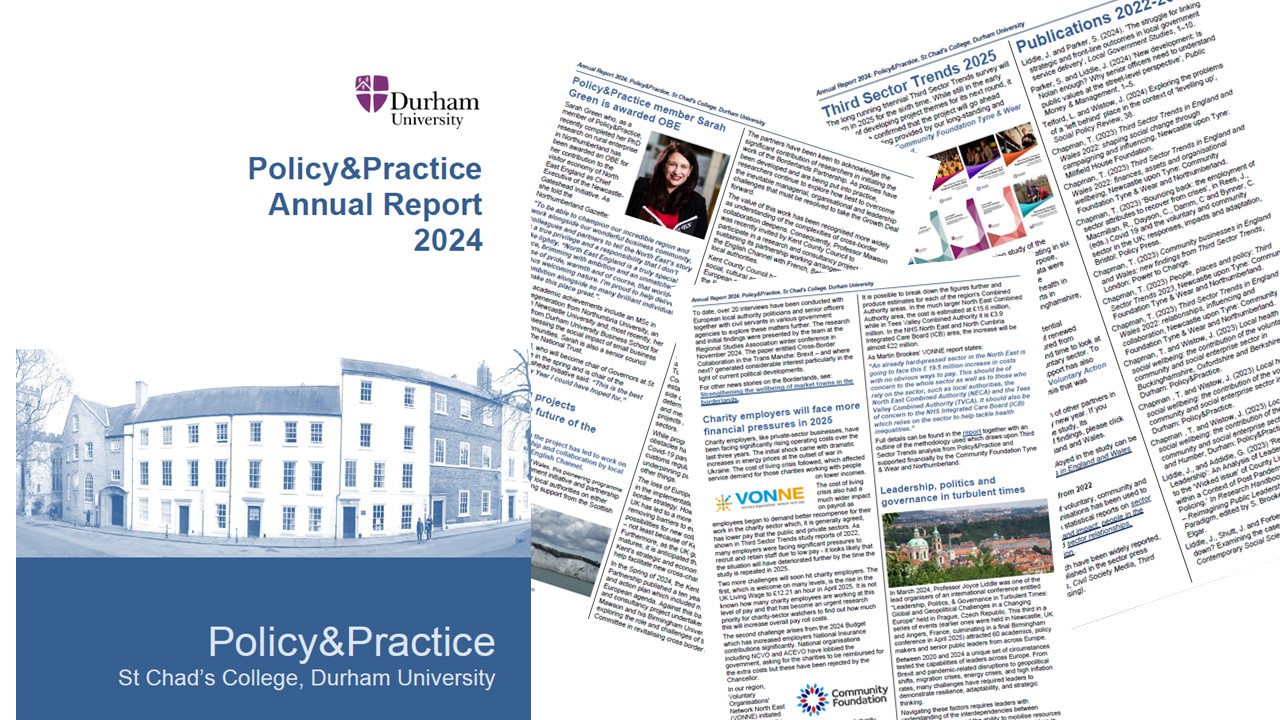
All posts by Tony Chapman
Working across borders to achieve economic growth
Learning from collaboration research in the Scottish and English Borderlands is being applied to challenges of post-Brexit partnerships across the English Channel
Policy&Practice academics have been exploring borderland collaborations for the last two years. The work, led by Professor John Mawson of Policy&Practice and Dr David McGuinness (Northumbria University) is focusing on the development and implementation of the ten-year £500 million Borderlands Inclusive Growth Deal which straddles the English-Scottish Border.
 Thanks to Wolf Blur for photograph, http://wolfblur.de/index.php/zu-meiner-person
Thanks to Wolf Blur for photograph, http://wolfblur.de/index.php/zu-meiner-person
Covering an area the size of Wales, this pioneering programme is the largest rural development initiative and partnership in the UK, bringing together local authorities on either side of the border with funding support from the Scottish and UK governments.
The partners have been keen to acknowledge the significant contribution of researchers in initiating the work of the Borderlands Partnership. As policies have been developed and are being put into practice, researchers continue to explore how best to overcome the inevitable managerial, organisational and leadership challenges that must be resolved to take the Growth Deal forward.
The value of this work has been recognised more widely as understanding of the complexities of cross-border collaboration deepens. Consequently, Professor Mawson was recently invited by Kent County Council to participate in a research and consultancy project on sustaining its partnership working arrangements across the English Channel with French, Belgian and Dutch local authorities.
Kent County Council has been undertaking economic social, cultural and environmental projects with its European partners for several decades funded largely by the European Union’s Interreg Programmes. However, the UK’s decision to exit the European Union in 2021, following the Brexit referendum, has resulted in a substantive loss of funding for such endeavours.
Recognising the value of this longstanding European collaboration activity and the associated build-up of shared knowledge, experience and trust – partners were keen to pursue alternative mechanisms and funding to sustain the work. To this end a voluntary Straits Committee Partnership was established in 2020 by local authority partners on either side of the Channel and North Sea. Its priorities are determined by an executive committee involving officer and member collaboration on agreed programmes and projects including a scheme for community and voluntary sectors.
While progress has certainly been made, unforeseen obstacles have interfered with the process such as the Covid-19 pandemic outbreak, the introduction of new customs regulations, transformations in the processes underpinning passenger and freight movements amongst other things.
The loss of European Union funding has slowed progress in the implementation of the Straits Committee’s cross-border strategy. However, a change of government in the UK has led to a more positive and stronger focus on removing barriers to economic growth which means that possibilities for new collaborative initiatives are emerging – not least because of Kent’s pivotal strategic location. Furthermore, as the UK government’s Devolution agenda matures, it is anticipated that this may further strengthen Kent’s strategic and economic development capacity and help facilitate new cross-channel developments.
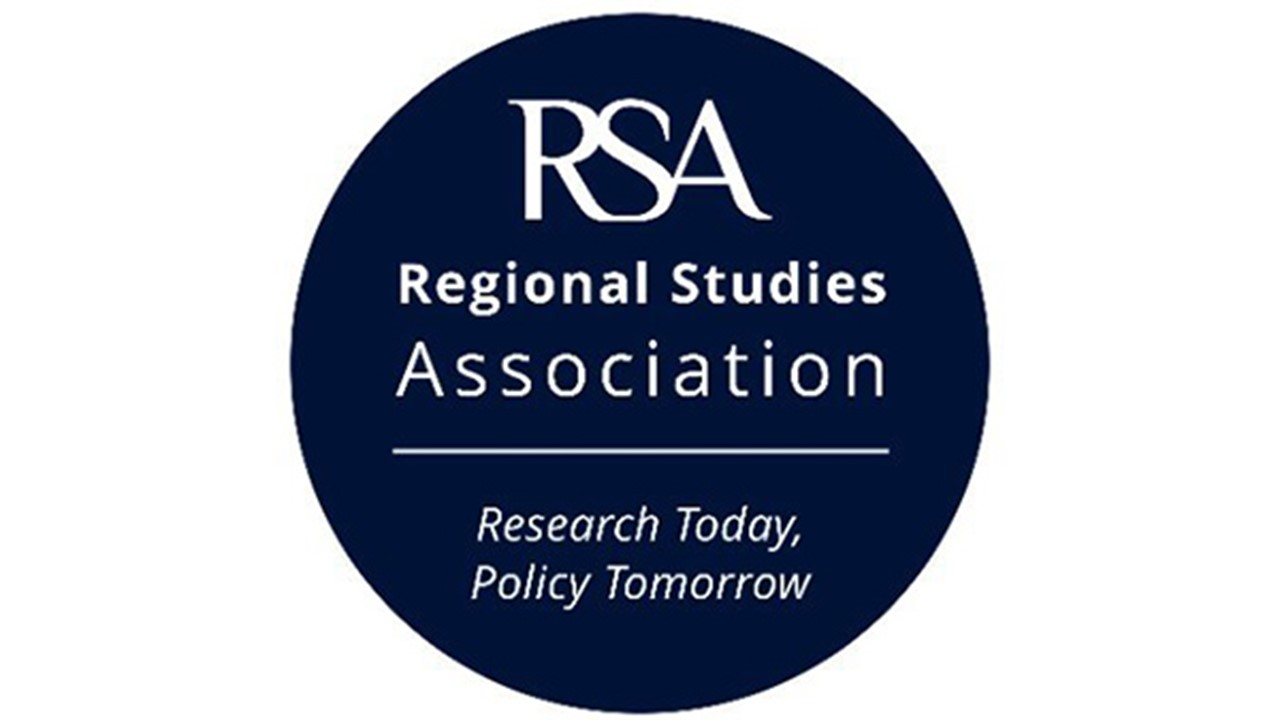
In the Spring of 2024, the Kent and Medway Economic Partnership published a ten year economic framework and action plan which included measures to support its European agenda. Against this background the research and consultancy project undertaken by Professor Mawson and his Birmingham University colleagues is exploring the role and challenges of the Straits Committee in revitalising cross border collaboration.
To date, over 20 interviews have been conducted with European local authority politicians and senior officers together with civil servants in various government agencies to explore these matters further. The research and initial findings were presented by the team at the Regional Studies Association winter conference in November 2024. The paper entitled Cross-Border Collaboration in the Trans Manche: Brexit – and where next? generated considerable interest particularly in the light of current political developments.
Leadership, politics and governance in turbulent times
On 14th and 15th March 2024, Professor Joyce Liddle was one of the lead organisers of an international conference entitled “Leadership, Politics, & Governance in Turbulent Times: Global and Geopolitical Challenges in a Changing Europe” held in Prague, Czech Republic. This third in a series of events (earlier ones were held in Newcastle, UK and Angers, France, culminating in a final Birmingham conference in April 2025) attracted 60 academics, policy makers and senior public leaders from across Europe.

Between 2020 and 2024 a unique set of circumstances tested the capabilities of leaders across Europe. From Brexit and pandemic-related disruptions to geopolitical shifts, migration crises, energy crises, and high inflation rates, many challenges have required leaders to demonstrate resilience, adaptability, and strategic thinking. Navigating these factors requires leaders with understanding of the interdependencies between different challenges, and the ability to mobilise resources and foster collaboration among diverse stakeholders in various ‘places’. Embracing multifaceted challenges and opportunities can equip leaders with new knowledge to shape the future trajectory of their countries, as well as sustain lasting contributions to well-being and prosperity for all citizens.
A rapidly changing context of global turbulence and unprecedented crises have created complex and evolving policy challenges for leaders at multiple levels of governance across Europe, and beyond. Presentations from leading experts in the field facilitated a more comprehensive understanding of some key global. interdependent challenges and opportunities, as academics, policy makers and leaders exchanged knowledge on emerging research questions, and explored ideas for designing, developing and implementing novel policies and initiatives to mobilise sub-national resources and foster partnerships for change.

At the outset in 2022 this network had addressed issues of the changing world of sub-national and transnational cooperation and development, and some of the new and uncertain contexts and local circumstances in which leadership takes place. Later discussions highlighted the importance of networking and relationship building activities across coterminous and non-coterminous national borders. These were followed by examinations on how leadership within a two-tier Europe was playing out. Gaps were identified to illustrate why certain places were leading and others continuing to lag behind, with some excellent leadership case studies promoted across different ‘places’. From an English perspective, the research of Liddle and co-authors had identified several challenges facing sub-national leadership, including those arising from Brexit, cross-border cooperation, how to counter challenges to local democracy, and maintaining a sub-national voice across Europe. The Prague conference showcased concrete and innovative examples of good practice in local and regional leadership across Europe to demonstrate how leaders are shaping the resilience of their places in current turbulent times
Many of the contributors in this series of events are contributing to a special issue of the international journal Regional Studies which will be published in 2025/6 and edited by John Gibney, Joyce Liddle, John Shutt and Markku Sotarauta, entitled: Leadership in city and regional development: new perspectives from within and beyond borders.
Charity employers will face increased financial pressures in 2025
Charity employers, like private sector businesses, have been facing significantly rising operating costs over the last three years. The initial shock came with dramatic increases in energy prices at the outset of war in Ukraine. The cost of living crisis followed, which affected service demand for those charities working with people on lower incomes. The cost of living crisis also had a much wider impact on payroll as employees began to demand better recompense for their work in the charity sector which, it is generally agreed, has lower pay that the public and private sectors. As shown in the Third Sector Trends Study reports of 2022, many employers were facing significant pressures to recruit and retain staff due to low pay – it looks likely that the situation will have deteriorated further by the time the study is repeated in 2025.

Two more challenges will soon hit charity employers. The first, which is welcome on many levels, is the rise in the UK Living Wage to £12.21 an hour in April 2025. It is not known how many charity employees are working at this level of pay and that has become an urgent research priority for charity-sector watchers to find out how much this will increase overall pay roll costs. The second challenge arises from the 2024 Budget which has increased employers National Insurance contributions significantly. National organisations representing the sector have lobbied the government, asking for the sector to be reimbursed for the extra costs but these have been rejected by the Chancellor.
In our region, Voluntary Organisations’ Network North East (VONNE) initiated work to assess the consequences of these changes for regional charity employers. Martin Brookes, Chief Executive of VONNE approached Professor Tony Chapman of Policy&Practice to assist in calculating the likely cost to the sector. The rise in employer National Insurance Contributions (allowing for factors such as the higher employer allowance) is estimated to add £ 19.5 million to the costs of the workforce in North East England 2025/26. 
It is possible to break down the figures further and produce estimates for each of the region’s Combined Authority areas. In the much larger North East Combined Authority area, the cost is estimated at £ 15.6 million, while in Tees Valley Combined Authority it is £ 3.9 million. In the NHS North East and North Cumbria Integrated Care Board (ICB), the increase will be almost £22 million.
As Martin Brookes’ VONNE report states:
“An already hard-pressed sector in the North East is going to face this £ 19.5 million increase in costs with no obvious ways to pay. This should be of concern to the whole sector as well as to those who rely on the sector, such as local authorities, the North East Combined Authority (NECA) and the Tees Valley Combined Authority (TVCA). It should also be of concern to the NHS Integrated Care Board (ICB) which relies on the sector to help tackle health inequalities.”
Full details can be found in the report together with an outline of the methodology used, drawing upon Third Sector Trends Study analysis from Policy&Practice and supported financially by the Community Foundation Tyne & Wear and Northumberland.
Click here to read the report: https://www.vonne.org.uk/impact-higher-employer-nics-north-east-charity-sector
If you want to know more about the Third Sector Trends Study, click here: https://www.stchads.ac.uk/research/third-sector-trends-in-england-and-wales/
Professor Joyce Liddle becomes a Professorial Fellow of St Chad’s College
Professor Joyce Liddle has a distinguished academic background having worked at national and international levels in the fields of urban and regional development, public policy, entrepreneurship, leadership and management. Much of her research and consultancy work has been undertaken in North East England addressing economic and social policy issues in collaboration with local and national politicians, and public, private, voluntary and community organisations.
In December 2024, Joyce was installed as a Professorial Fellow of St Chad’s College by the Board of Governors, cementing her position as a full member of the College as well as being a member of Policy&Practice.
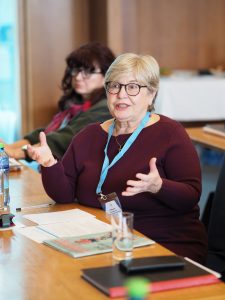
Joyce was educated at Durham University in politics and sociology, studied for a PhD at the Local Government Centre, Warwick University and went on to hold the position of Course Director in post graduate Management Studies at Durham Business School. Subsequently, Joyce held Professorial, management and research posts in seven UK Universities including Sunderland, Durham, Newcastle, Northumbria, Teesside, Nottingham, Nottingham Trent University and in Aix-Marseille, France.
Her international reputation is reflected in advisory roles for ministers and civil servants in Italy, Finland, the West Indies and China as well as holding Visiting University Chairs in six countries. She also developed education and training programmes for public and civil servants in South Africa, Bahrain, France, Kazakhstan, Brazil and Ethiopia.
Drawing on a successful track record in securing UK Research Council and other research funding she has published over 250 articles, 45 book chapters and written and co-edited some sixteen books as well as fulfilling a number of editorial roles for journals and book series.
Joyce was a founding member and co-leader of an influential Regional Studies Association ‘Trans-border Place Leadership in Europe’ network. She is a Fellow of AcSS for services to the Academy and Society, Fellow of UK JUC/PAC for services to public policy and administration, and a Fellow of Regional Studies Association, for services to UK and international Regional policy and development, She is also a UKRI panel member, Future Leaders’ Fellowship Panel and a member of POGO, Blavatnik Business School, University of Oxford.
During her time at Northumbria (to continue as a Visiting Professor, Newcastle) she acted as Academic Director and Board Member of Insights North East, and led on Inclusive Growth. This regional partnership seeks to bridge the gap between research and place-based leadership policy involving Newcastle, Northumbria Sunderland and Durham Universities, NHS, North East Mayoral Combined Authority (NEMCA), local Councils and other regional agencies. In January 2024 she was an invited member of an Expert Advisory Panel to help to develop NEMCA Investment Planning Framework.
More widely, Joyce’s research nationally and in the North East has included a report for the NE Future Finance Commission (NELEP) on funding for regional development in the NE, a UKRI funded (4 nation state) project on Local Government Procurement under Covid 19, Levelling Up Reports widely discussed in national and international press, Devolution and regional performance in the NE, Place Leadership and Governance issues after Brexit. She was recently invited as a UK discussant at OECD Paris (May 2024), on a panel on Transforming Places: Leading Change. The report is available at OECD, Paris, publications.
Joyce is currently taking forward her work surrounding Devolution in the North East and related public policy and management issues in collaboration with members of the Policy and Practice research group.
The impact of voluntary organisations in Wales
Policy&Practice has been commissioned by Wales Council for Voluntary Action (WCVA) to produce two new reports on the structure, energy, dynamics and impact of voluntary organisations in Wales using Third Sector Trends data together with new evidence from Third Sector Trends’ register of registers data which was updated in October 2024.

The first will consolidate findings from register data and survey work done in 2022. The report will use comparative evidence from within Wales, aligned with Wales government data on demographic, social and economic factors. The report will also compare the situation in Wales with English regions and in places with similar spatial characteristics across England to assess variations in practice, purpose and impact. This report will be published in February 2025.
WCVA are also backing the continuation of the next round of the survey in the summer and early autumn of 2025 to assess changes in sector activity in the last three years. This work will involve a partnership approach to working between WCVA and Policy&Practice to maximise response rates from voluntary organisations across all areas of Wales.
In February 2026, the second report will update analysis and make an overall assessment of the strengths and dynamics of the sector in the run up to Senedd elections in the late spr
Criminal justice in North East England and Yorkshire and Humber
Policy&Practice has been commissioned to work with Clinks to develop a database on voluntary, community and social enterprise (VCSE) organisations which contribute to tackling aspects of criminal justice.
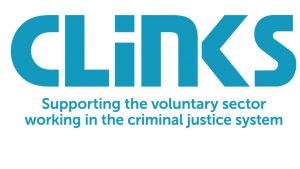
Centred on North East England and Yorkshire and Humber this study, Clinks, supported by His Majesty’s Prison and Probation Service (HMPPS), is working with Professor Tony Chapman to engage in extensive searching of register data and evidence from 360Giving to build a picture of sector activity and how it contributes to a range of criminal justice agendas. Once a list of relevant VCSE organisations has been compiled, data will be mapped against several geographical criteria including local authority and combined authority areas, by the indices of multiple deprivation and areas with specific spatial characteristic (such as urban, rural and coastal areas).
Identifying organisations engaged in aspects of criminal justice is not straight forward as many organisations work across thematic areas for a range of constituencies of public agencies, charitable foundations and beneficiaries. That is the point of the work – to look at those organisations which directly or more tangentially associate with criminal justice themes through, for example, the arts, youth organisations, sport – not just those which work specifically on issues centred on prisons and probation.
Clinks is the leading authority on the voluntary sector working in the criminal justice system across England and Wales and for over 10 years has established itself as a strong presence in the North East region. During this time Clinks has developed relationships with voluntary sector organisations, criminal justice system stakeholders and statutory sector agencies across the area including Yorkshire and Humber.
As the purpose of the project is to increase awareness and knowledge of voluntary sector organisations, Clinks will hold focus groups across the region to identify gaps in provision and debate how to limit duplication of service when developing strong relationships between the VCSE and HMPPS to improving cross-sector collaboration and to refine and focus co-commissioning approaches.
The project will culminate in a report by Clinks to the Prisons and Probation Service in spring 2025.
Third Sector Trends in England and Wales 2025
The long running triennial Third Sector Trends survey will return in 2025 for the sixth time. While still in the early stages of developing project themes for its next round, it can now be confirmed that the project will go ahead thanks to funding provided by our long-standing and principal partner Community Foundation Tyne & Wear and Northumberland.
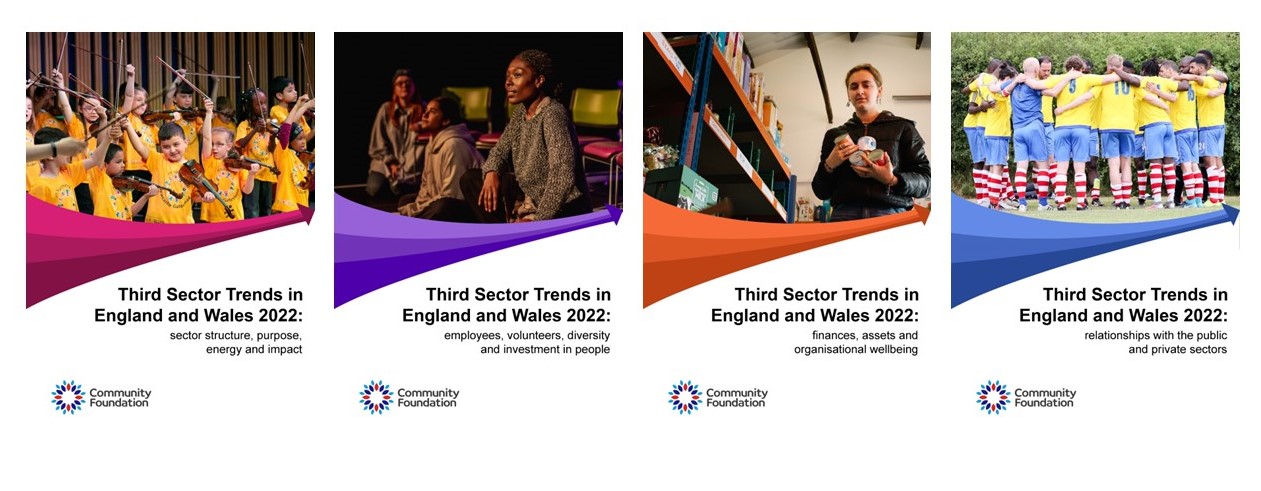
This is the largest and longest running study of the voluntary sector in England and Wales, culminating in six core reports on sector structure, dynamics, purpose, influencing, energy and impact in 2022-23. Data were then explored further to look specifically at the contribution of the voluntary sector to public health in three separately funded but integrated reports in Yorkshire and Humber, Cumbria and Buckinghamshire, Oxfordshire and Berkshire West.

While negotiations continue with other potential contributors to the project, confirmation of renewed support for the study has also been secured from Millfield House Foundation for a second time to look at campaigning and influencing in the voluntary sector. To secure a strong response in Wales, support has also been provided by Wales Council for Voluntary Action and will allow for more in-depth analysis that was possible in the 2022 study.
Announcements on the participation of other partners in the project will be made in the early new year. If you would like to see more detail on the study, its methodology and its publication of findings, please click here: Third Sector Trends in England and Wales.
Shared mobility solutions in public transport networks
Professor Joyce Liddle of Policy&Practice welcomed Colombian doctoral student, Santiago Rodriguez Tabaquiro to our North East region for a three-month research visit between September and December 2024. She is jointly supervising his PhD research at the University of Aix-Marseille, France, where she led the research centre for Public Management, Governance and Regional Development (IMPGT) between 2011-2017.
Santiago is focusing on ‘Shared mobility solutions in public transportation networks’, with a special focus on car pooling, car sharing, car clubs and other micro-mobility solutions to urban and rural transport. His chosen case study here in the UK is the Newcastle and Gateshead metropolitan area which he will compare with his findings on the Aix-Marseille Metropolitan.
He will be undertaking a series of interviews with senior policy personnel and politicians in urban and rural governance across the wider North East region. In particular he will meet with those shaping transport policies in NEXUS, North East transport authorities, local authorities and the Mayor’s Office at the North East Combined Authority. Santiago is working in collaboration with researchers at Insights North East (INE), a University-wide research collaboration of which the University of Durham is a key member.
Santiago is happy to share his findings with other researchers, and if time allows before he returns to France, he will join us at St Chads to discuss his research work
Place leadership and regional governance in transition
Global and Geopolitical Challenges in a Changing Europe conference, Prague, 14 – 15th March 2024.

In March, Professor Joyce Liddle of Policy&Practice, organised this event with fellow members of the conference series’ committee: Professors Martin Pělucha, Prague University of Economics and Business; John Shutt and Ignazio Cabras, Northumbria University; Dr John Gibney, University of Birmingham, and Professor Markku Sotarauta, Tampere University, Finland. The conference was one a series of events held across Europe which will culminate in a final event in Birmingham in April 2025.
Place leadership has been the subject of extensive academic discourse for many years. Debates took place at a pivotal geopolitical moment, resulting from war in Ukraine and its political and economic consequences – not least of which is an acceleration of Europe’s migration crises. The confluence of unprecedented challenges led participants to call for a dynamic and adaptive approach which requires leaders to redefine strategies, adapt decision-making processes and exercise agility in fast-evolving circumstances.
Professors Liddle, Shutt and Gibney’s contribution identified several challenges facing sub-national leadership. These focused on how to respond to inter-related challenges of Brexit and cross-border cooperation and how to counter challenges to local democracy and enable a sub-national voice?
Many of the contributors in this series of events will prepare articles for a special issue of the journal Regional Studies which will be published in 2025/6 edited by John Gibney, Joyce Liddle, John Shutt and Markku Sotarauta, entitled: Leadership in city and regional development: new perspectives from within and beyond borders.
